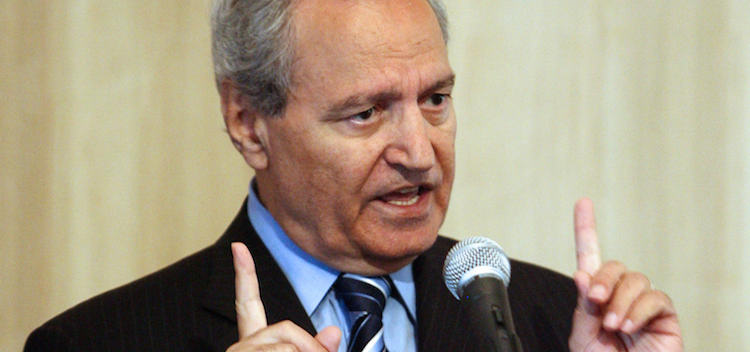(Translation by Yusra Ahmed)
A new leaked document from the lot published on WikiLeaks, shows that relationship between Bashar al-Assad and Farouk al-Sharaa worsened after the Syrian revolution, as he had expressed his opinion in what had been happening in the country during his meeting with Bashar al-Assad, which caused anger for Assad.
The document describes al-Sharaa as “helpless”.
The first page of the 4-page document shows that al-Sharaa was eliminated from the Political Committee consists of “Bashar al-Assad, Walid al-Moalim and Ali Mamlouk” responsible for directing the country’s situation.

The fourth page, detailed that al-Sharaa, had visited Bashar al-Assad and after the visit he returned to his office and told his office director that relationships between him and al-Assad was very bad because he honestly gave his opinion of what was happening in the country, which caused anger to Assad and the meeting finished badly.
The leaked document published on wikiLieaks mentioned that al-Sharaa was “helpless” and requested from Mohammed Nasif, the security consultant for Bashar al-Assad, to mediate to reduce the tension and Bashar’s anger in order to prevent tension from going any further.
WikiLeaks, late on Friday, published more than 60,000 Saudi diplomatic documents to the Internet, a move that echoes its famous release of US State Department cables in 2010.
There was no immediate way to verify the authenticity of the documents, although
WikiLeaks has a long track record of hosting large-scale leaks of government material. Many of the documents carried green letterhead marked “Kingdom of Saudi Arabia” or “Ministry of Foreign Affairs.”
If genuine, the documents would offer a rare glimpse into the inner workings of the notoriously opaque kingdom. They might also shed light on Riyadh’s longstanding regional rivalry with Iran, its support for Syrian rebels and Egypt’s military-backed government, and its opposition to an emerging international agreement on Tehran’s nuclear program.
A new leaked document from the lot published on WikiLeaks, shows that relationship between Bashar al-Assad and Farouk al-Sharaa worsened after the Syrian revolution, as he had expressed his opinion in what had been happening in the country during his meeting with Bashar al-Assad, which caused anger for Assad.
The document describes al-Sharaa as “helpless”.
The first page of the 4-page document shows that al-Sharaa was eliminated from the Political Committee consists of “Bashar al-Assad, Walid al-Moalim and Ali Mamlouk” responsible for directing the country’s situation.

The fourth page, detailed that al-Sharaa, had visited Bashar al-Assad and after the visit he returned to his office and told his office director that relationships between him and al-Assad was very bad because he honestly gave his opinion of what was happening in the country, which caused anger to Assad and the meeting finished badly.
The leaked document published on wikiLieaks mentioned that al-Sharaa was “helpless” and requested from Mohammed Nasif, the security consultant for Bashar al-Assad, to mediate to reduce the tension and Bashar’s anger in order to prevent tension from going any further.
WikiLeaks, late on Friday, published more than 60,000 Saudi diplomatic documents to the Internet, a move that echoes its famous release of US State Department cables in 2010.
There was no immediate way to verify the authenticity of the documents, although
WikiLeaks has a long track record of hosting large-scale leaks of government material. Many of the documents carried green letterhead marked “Kingdom of Saudi Arabia” or “Ministry of Foreign Affairs.”
If genuine, the documents would offer a rare glimpse into the inner workings of the notoriously opaque kingdom. They might also shed light on Riyadh’s longstanding regional rivalry with Iran, its support for Syrian rebels and Egypt’s military-backed government, and its opposition to an emerging international agreement on Tehran’s nuclear program.
Zaman Al Wasl
















Comments About This Article
Please fill the fields below.